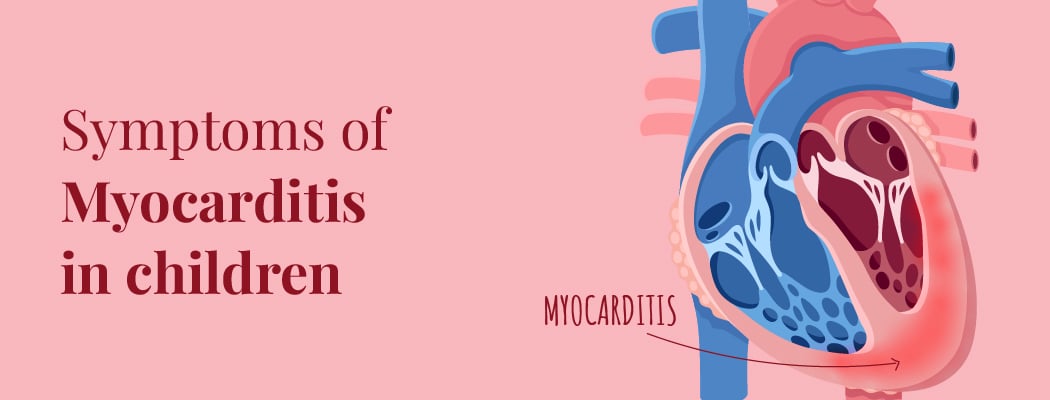Is myocarditis curable
November 1, 2022

Is myocarditis curable? Yes, most patients only experience one bout of myocarditis, which they recover from with rest, medicine, and avoiding strenuous activity while their hearts heal. In the beginning, doctors will closely monitor your development; depending on your circumstances; you can be granted a yearly follow-up appointment.
Table of Contents
Myocarditis may remain longer or recur in some persons. If the inflammation has harmed (scarred) your heart, doctors will closely monitor your recovery with follow-up appointments at least every few months.
What is myocarditis?
The condition known as myocarditis causes inflammation of the heart muscle, sometimes referred to as the myocardium. This muscle contracts and relaxes to pump blood into and out of the heart and the rest of the body.
The myocardium’s capacity to pump blood is reduced when it is inflamed. This results in an irregular heartbeat, chest pain, and breathing difficulties.
In difficult situations, it may result in blood clots that damage the heart, cause a heart attack or stroke, or even cause death.
In most cases, your body responds to a wound or infection by inflaming. For instance, the tissue around a cut on your finger quickly expands and gets red.
However, myocarditis can occasionally be brought on by the immune system or another source of inflammation
Also Read: Heart Healthy Diet
Why does myocarditis develop?
The precise cause of myocarditis is frequently unknown. It’s thought that 50% of the time, the reason for acute myocarditis is unknown. Idiopathic myocarditis is the term for this.
When the etiology of myocarditis is identified, infection is typically to blame. This is because the bacterium or organism that causes a disease may occasionally make its way to the heart and harm the heart muscle directly. Other times, the immune system deals with the infection, which triggers an inflammatory reaction that might harm the heart muscle.
Furthermore, some autoimmune conditions, such as lupus, can lead to the immune system wrongly attacking the heart, causing inflammation and myocardial damage.
Types of Myocarditis
Acute myocarditis
Myocarditis with a relatively recent or rapid beginning is referred to as acute myocarditis, and a viral infection typically brings it on. However, the symptoms of acute myocarditis might appear unexpectedly and disappear just as quickly.
Chronic myocarditis
Chronic myocarditis occurs when the ailment lasts longer than it should or when symptoms return after being treated. This can happen due to more widespread inflammatory illnesses, including autoimmune disorders, in which your body’s immune system assaults healthy cells and tissue.
Lymphocytic Myocarditis
Rarely occurring lymphocytic myocarditis can necessitate hospitalization for urgent care. It happens when white blood cells (lymphocytes) penetrate and inflame the heart muscle. This disease may develop after a virus strikes.
Symptoms of myocarditis
There may be few or no symptoms in the early stages. Typical signs might include:
- Chest pain
- Fatigue
- Rapid or unusual heartbeat (arrhythmia)
Infection indicators:
- Diarrhoea
- Headache
- Fever
- muscle pain
- sore throat
- breathing difficulty
- Leg swelling
Idiopathic Myocarditis
Myocarditis is uncommon, but an internal infection is usually at blame when it does happen. Myocardial inflammation can be brought on by infections with bacteria, fungi, parasites, viruses (most frequently, viruses that cause the common cold, influenza, or COVID-19), or other microorganisms.
Due to the immune system’s capacity to attack any organ in the body, including the heart, causing inflammation, autoimmune illnesses, including lupus, sarcoidosis, and others, can also result in myocarditis. Myocarditis can also result from drug use, environmental exposure, or hazardous substances.
Myocarditis diagnosis
Due to its broad symptoms and signs, it can be challenging to diagnose myocarditis. Your doctor will thoroughly examine your medical background and current symptoms and may order the following tests:
- Blood test
- Chest X-ray
- Electrocardiogram (ECG) (ECG)
- Echocardiogram (ultrasound of the heart) (ultrasound of the heart)
In some circumstances, a cardiac MRI or biopsy may be necessary.
Myocarditis and children
The most typical signs and symptoms in kids are:
- Fatigue
- Shortness of breath
- Stomach ache
- Fever
In youngsters, myocarditis can be challenging to diagnose. This is due to the fact that symptoms might be vague and confused with those of more widespread illnesses like pneumonia or asthma. Furthermore, it is riskier to do a myocardial biopsy on youngsters, the gold standard for myocarditis diagnosis.
Children with myocarditis require careful management. While many kids bounce back on their own, some can develop more serious symptoms quickly, increasing their risk of developing heart damage. This can have a major impact on long-term health if it happens at a young age.
Also Read: What Is A Heart Transplant?
How does the chest pain caused by myocarditis feel?
When resting or exercising, it’s usual to experience tightness or squeeze in the chest. If you’re lying down, it might also take place. Sharp or stabbing chest pain is possible, and it may radiate to other parts of your body.
Your chest discomfort may feel better when you lean forward and worse when you lie back if the pericardium, the lining of the heart, is also affected by the inflammation in your heart muscle.
Additional heartbeats that feel like a flutter in your chest are another symptom of inflammation. Additionally, you might experience lightheadedness if a sequence of several other beats is strung together.
What can I ask the doctor?
The treatments will be discussed, and your doctor will explain which is best for you. Before a visit, some people find it helpful to brainstorm questions they want to ask their doctor and write them down on paper or their phone, so they remember to bring them up. For example, you might find it useful to ask your doctor the following questions:
- What’s the next step in my plan?
- Any advice on controlling symptoms?
- When and how may I resume exercising?
- When and how can I resume my job?
- You can have concerns that are humiliating or awkward to bring up. Your doctor has discussed all of the questions you have with many other individuals as well.
Added measures that could be helpful
- Use pillows to achieve a comfortable position. For example, some people find that leaning forward and resting their arms on a table works well, while others may find that utilising more pillows while sleeping works.
- Put on airy, loose-fitting clothing.
- Keep hydrated.
- Maintain a balanced diet rich in fruit and vegetables.
When I suspect I have myocarditis, who do I see?
Your primary care physician is a good place to start if you only have minor myocarditis symptoms. If your symptoms are severe,an emergency hospital doctor may examine you first. Most certainly,a cardiologist and perhaps an infectious disease specialist will be recommended for you.
People also ask
How do I know if I have myocarditis?
Irregular or fast heartbeat (arrhythmias), breathlessness at rest or while moving around. Feeling dizzy or as if you could pass out. Symptoms that resemble the flu, such as a headache, body aches, joint discomfort, fever, or sore throat.
Can you fully recover from myocarditis?
Some myocarditis patients may only require treatment for a few months before fully recovering. On the other hand, some people may develop severe, irreversible heart damage that necessitates lifelong medication. Therefore, after receiving a myocarditis diagnosis, it’s critical to undergo routine health examinations to look for potential problems.
What is the life expectancy after myocarditis?
Once damaged, the body cannot repair the heart muscle. As a result, the mortality rate from myocarditis is 50% within five years of diagnosis.








